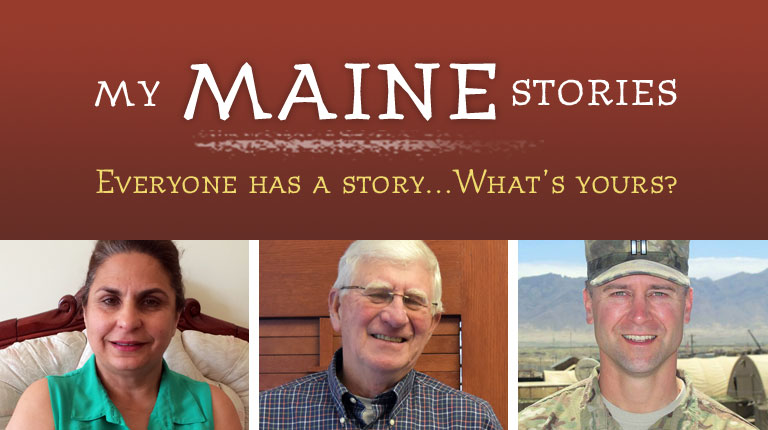A story by Carol Norton Hall from 1940s
The 1940s were the most memorable ten years of my life. When in December 1941 Pearl Harbor was attacked, I was a sophomore at Deering High School in Portland. This was shocking news for a 16-year old. It caused drastic changes for many years. Before our class graduated in ‘43, some of the boys left school to enlist. Others left later, and not all returned.
I attended Gorham State Teachers College for two years from ‘44 to ‘46. One of my favorite memories is the arrangement for our dances. There was an uneven balance between two hundred girls and a just a few non-enlisted and returning servicemen. Fort Williams soldiers came to the rescue. As the girls stood on the mezzanine in Bailey Hall, we were each given a number. When the boys entered the hall, they were also given a number. The matching numbers were their dates for the evening. There was some quick switching if a too tall or too short girl wanted to change her number.
Wartime affected our food supply as well. We had lobster several times a week because the exportation was limited. It was a treat to have baked beans on Saturday nights at the downhill café.
At this time in Portland, the fleet was in. Many “Coasties” were around and were joined by sailors, soldiers, and marines. Being a willing hostess at several service centers was a favorite duty. State Street Congregational Church opened its fellowship hall for recreation, offering dancing, pool tables, piano music, chatting, and punch and cookies. A sign on the wall said, “Our hostesses will gladly sew on your buttons.”
Another “Christian home away from home” was the Upper Room. It was the office of the Greater Portland Council of Churches on the second floor of the old Keith’s Theater Arcade on Congress Street. On November 11, 1944, I met the sailor in the Upper Room who became my husband. He was stationed on the USS Alcor in Casco Bay.
One other event in 1944 will stay with me forever. I played the cello in a trio. We had been asked to help entertain the men on the hospital ship USS Relief stationed in Casco Bay. The Coast Guard shuttled the musicians and entertainers. I recall holding my cello over the ocean while climbing up the rope ladder to the deck. When we descended in the elevators, the doors opened and we beheld a sea of sailors. After our program, I played the piano for song requests and group singing.
Although there were hardships and shortages, the 40s were full of a spirit of cooperation and we enjoyed doing our part during this memorable time.





